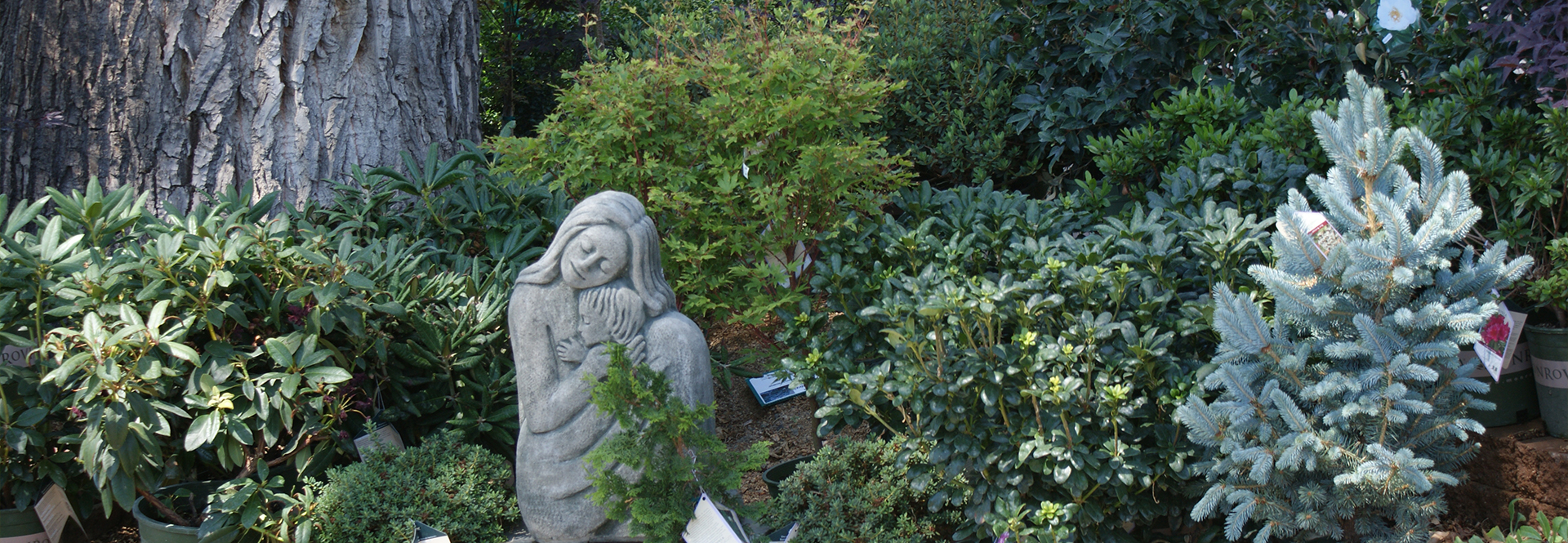by Ken Lain, the mountain gardener
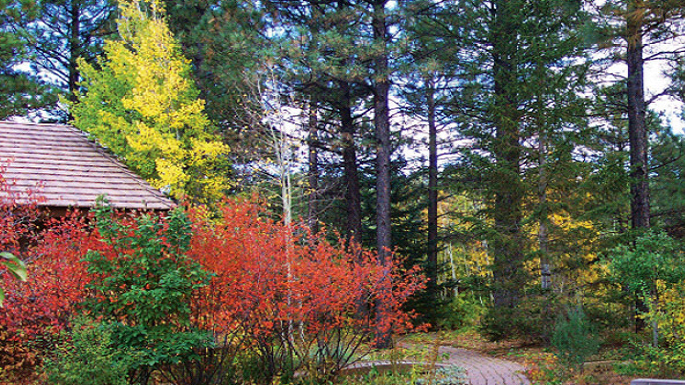
Mountain landscapes are famous for their autumn colors. This month’s column is merely a list of the best-colored plants you’ll find to plant in your backyard. Of course, there are more choices, especially if you include ornamental grasses and the mountain flowers that bloom through the end of the year. For an in-depth tour of all the possibilities of fall, plants consider this a personal invitation to visit the plant ambassadors here at Watters Garden Center 🙂
Don’t have time to view the entire article, see the highlights below:
- Super mountain shrubs with great fall colors: Grow Low Sumac, Goldflame Spirea, Burning bush, Barberry, Nandina, native Virginia Creeper, Boston ivy, Silverberry, Smokebush, Flame Maple.
Here is the list of best mountain plants that can be planted now for autumn beauty:
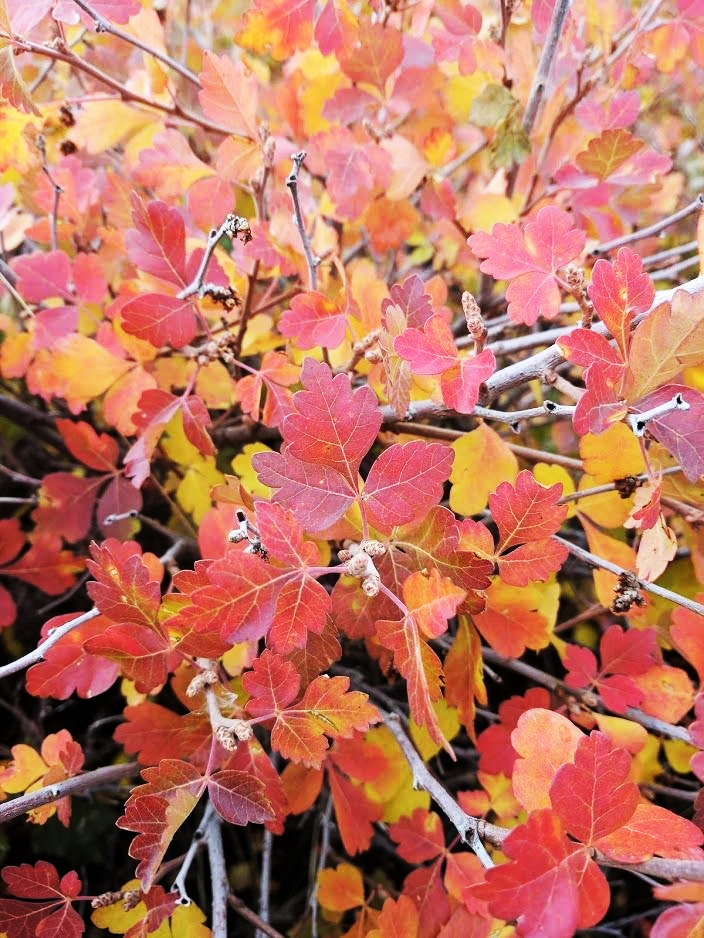
Grow-Low Sumac spreads like a groundcover over hillsides and is native throughout the mountains of Arizona. They are so easy to grow and so popular here at Watters we have four different varieties in stock. Sumacs are the very first plants to show their colors and continue through October. They are available in ground cover height that stays below knee level to 12′ towers that resemble mountain palm trees but love cold mountain winters. Javelina proof!
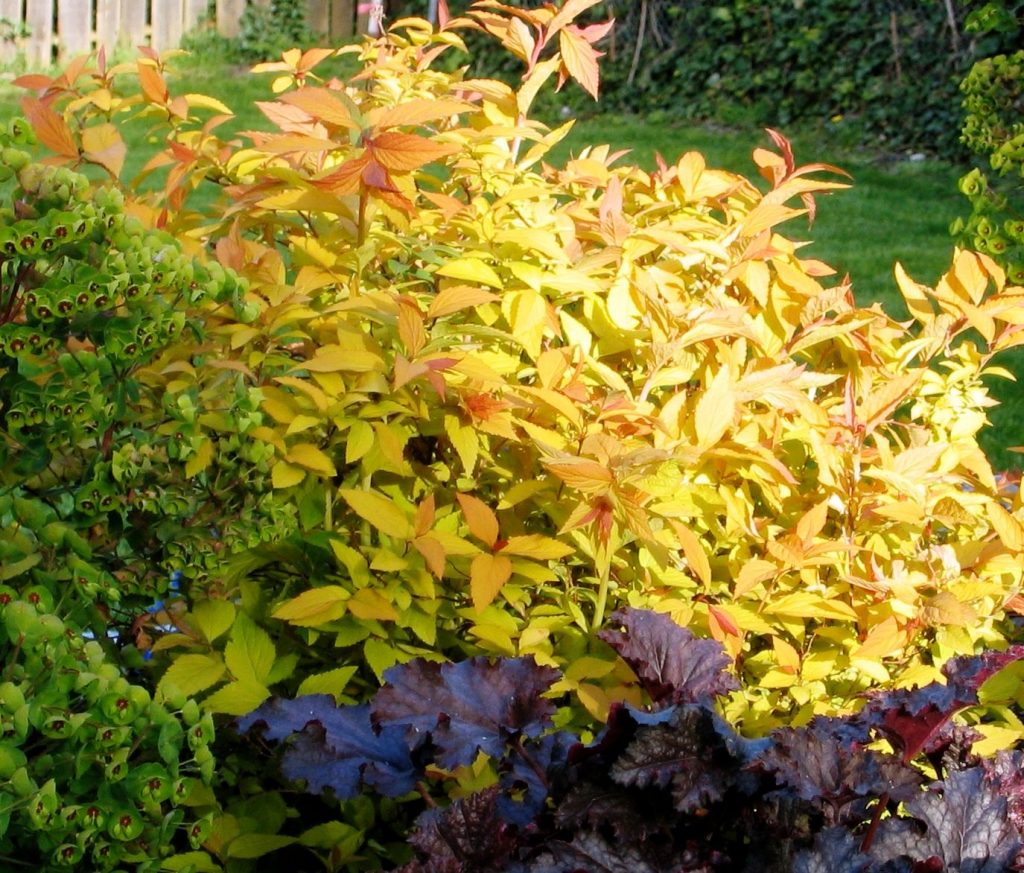
Goldflame Spirea is deer and rabbit proof. An old-fashion plant made famous by our grandparents, but it’s still a ‘rock star’ in my garden. It is effortless to grow with little to no maintenance required once established. My personal favorites have bright gold foliage through summer and now show their fall colors of purple and reds. The equally brilliant flowers in April are simply a bonus to this garden showoff. It looks delicate, but deer, rabbits, and javelina detest the taste and leave this beauty alone.
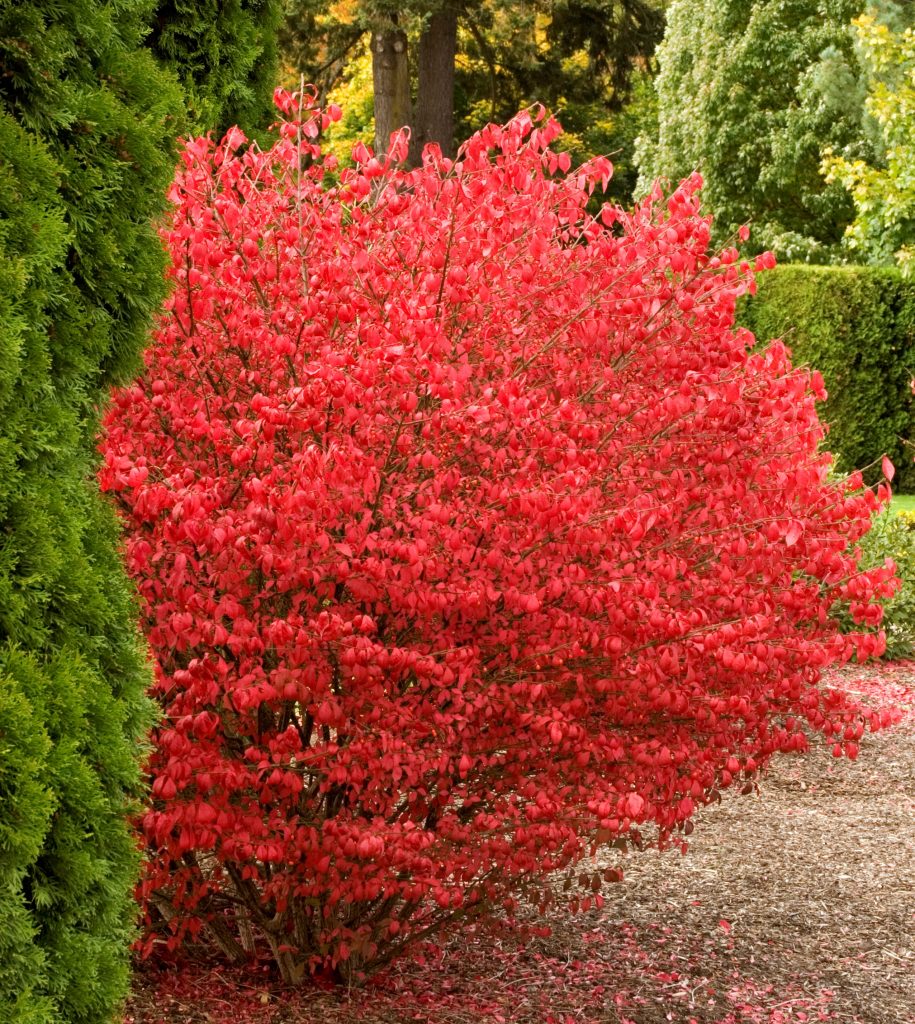
Burning Bush in color and ready for autumn planting is most famous for it’s glowing red foliage that deepens in color through Autumn. It loves mountain sun and wind and performs best when subjected to at least 6-hours of hot sun per day. Dark green leaves reach to head height and are easily trimmed into hedges for an extra thick shrub.
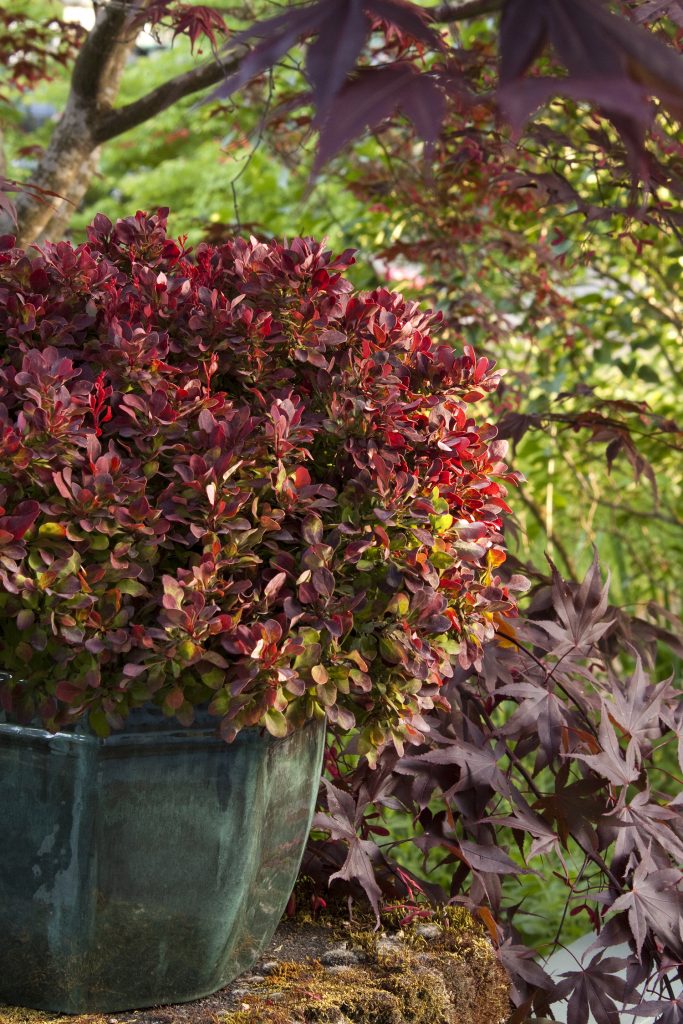
Barberry is most appreciated for its ability to withstand the worst garden soils. I rate it as one of the bright shrubs of fall. You’ll find at least four different barberries here at Watters most months, but now is when they show their best colors. Their shades of burgundy, golds, reds, and pinks can often be found on the same bush. Barberries are so hardy they can be planted right next to the driveway and stand up to the heat.
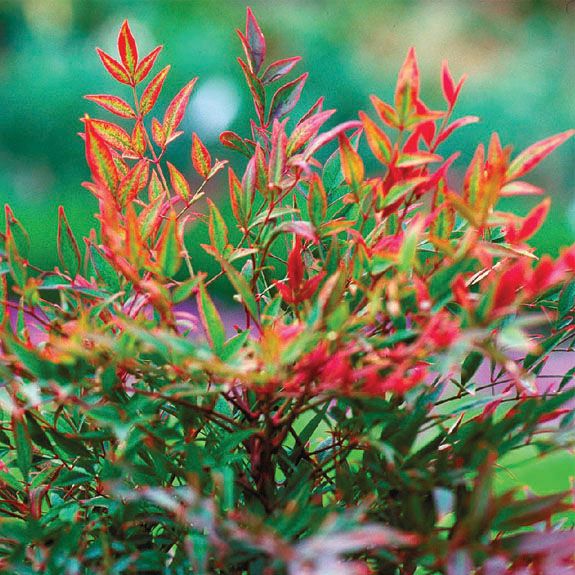
Nandina (Heavenly Bamboo) The autumn red foliage turns back to spring green at the start of each new growing season. Compact, rarely needs trimming, evergreen, and turns red in the fall – what more could you ask from a landscape plant? Oh wait, I forgot; this beauty is animal-proof and won’t be eaten by even the hungriest mammals.
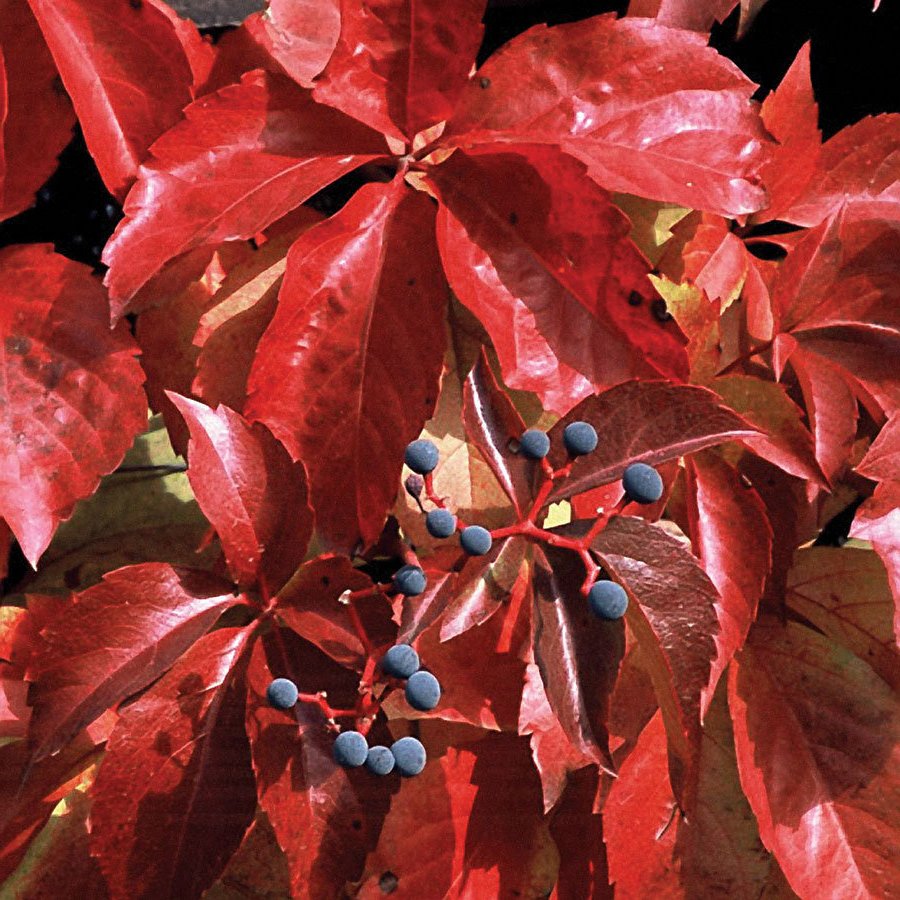
Virginia Creeper grows wild throughout Northern Arizona. It’s tough enough to be used as groundcover up broken hillsides, creeping between boulders or a new trellis or fence. Each vine will easily reach eight feet in height, covered with soft green foliage. Autumn is when we sell the most Virginia Creepers because of its spectacularly red leaves. Animals won’t bother this plant, with little to no water needs once rooted, this mountain plant has it all.
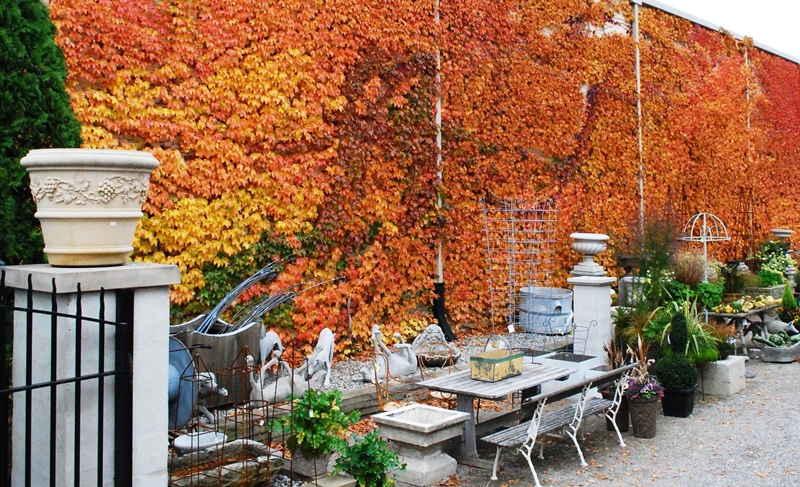
Boston Ivy is entirely different from English Ivy and is much brighter in the garden. Related to Virginia Creeper, this plant has an added advantage. It is one of the few vines that will self-cling to any surface whether a cinder block wall or up a rock face. More orange than red, this natural garden vine resembles an Arizona sunset as it moves into November.
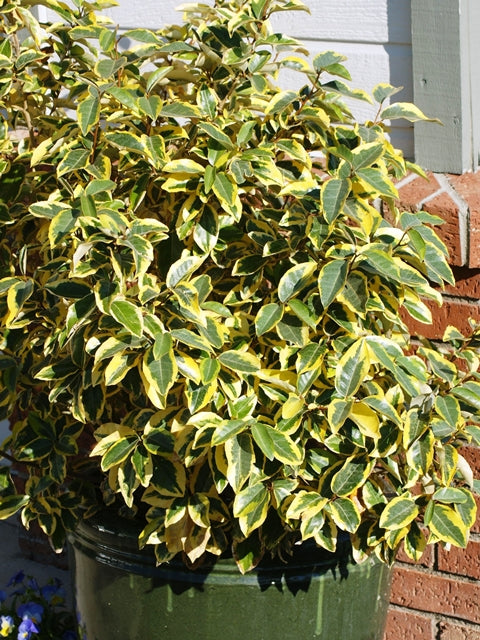
Silverberry grows wild through the mountains. It is best known for its evergreen toughness, ease of care, and fragrant spring flowers. We figured out how to add a gold edge to the blue foliage while still maintaining its inherited native traits. It’s a bit outside the autumn-colored box because this new native shrub looks bright all the time, but it shows best now through winter. It quickly trims into a privacy hedge or may remain a free-flowing shrub to head height. It is not attractive to deer or javelinas.

Latest Garden News – It’s been seven months in the making, and the first edition is now online. I launched a digital garden center this month that just makes researching local plants easier. Plant organization is precisely how a designer investigates them in the landscape. Trees are broken up into Evergreens, Shade and Fruit Trees to narrow down your search. This is an active list of plants that often changes as crops are harvested and brought to Watters Garden Center.
Top10Plants.com is for locals of central Arizona only. Amazon will not be delivering a 300-pound tree to your doorstep. We have local delivery and planting teams hired to install plants for you or pick plants up yourself here at Watters Garden Center. Take a look and let me know how to make this new digital garden center even better.
Until next issue, I’ll be here at Watters Garden Center, helping local gardeners brighten their autumn landscapes.

